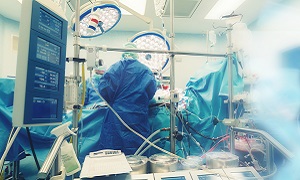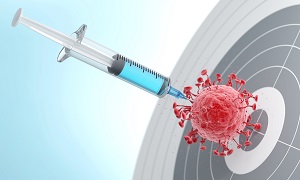Best Doctors in India for Kidney Cancer Treatment
Best Hospitals in India for Kidney Cancer Treatment
- City: New Delhi, India
Hospital Highlights:
- Equipped with 650 beds, BLK-Max Super Speciality Hospital is the largest stand-alone private sector hospital in Delhi.
- With over 1500 healthcare providers and 150 globally renowned super specialists, the hospital is one of Asia’s largest BMT Centres. The hospital is known for having some of the best cancer doctors in the country.
- The hospital is NABH and NABL accredited and was inaugurated by the first Prime Minister of India. Pt. Jawahar Lal Nehru.
- City: Hyderabad, India
Hospital Highlights:
- Located in the vibrant city of Hyderabad, Apollo Health City is a world-renowned medical facility that provides outstanding care and treatment to patients coming from different parts of the world.
- Founded in 1988, this 550-bed multispecialty hospital with 50 specialties and 12 Centres of Excellence continues to deliver outstanding outcomes for patients with the simplest to the most complicated medical conditions.
- Backed by the latest medical equipment and a dedicated team of professionals, the hospital provides comprehensive treatment across various specialties including, cardiology, critical care, neurosciences, cancer, orthopedics, gynecology, ENT, transplants, gastroenterology, etc.
- Apollo Health City is a cutting-edge healthcare facility that combines various facilities under one roof. These may include state-of-the-art physical medicine, rehabilitation, and wellness services with education, research, telemedicine, innovative medical devices, disease management programmes, and medical talents.
- The hospital is known for offering top-notch cancer treatment accompanied by cutting-edge facilities and technology.
- The hospital also offers a broad spectrum of cosmetic procedures that improve not just appearance but also comfort.
- In 2011, Apollo Health City was the recipient of the Asian Hospital Management Award (AHMA).
- In 2013, the Government of India recognized Apollo Health City as the top medical tourism destination in the country.
- City: Mumbai, India
Hospital Highlights:
- Kokilaben Dhirubhai Ambani Hospital, Named after the wife of Indian industrialist Dhirubhai Ambani, the founder of Reliance Industries, this is one of the top hospitals in Mumbai. This 750-bed multi-specialty hospital became operational in 2009. Known as one of India’s most advanced tertiary care facilities, the hospital is designed to raise India’s global standing as a healthcare hub, with an emphasis on excellence in clinical services.
- Kokilaben Dhirubhai Ambani Hospital uses Protocol and Care Pathway based treatment models to ensure the best outcomes for patients.
- The hospital represents a confluence of top-notch talent, cutting-edge technology, state-of-the-art infrastructure, and, most importantly commitment.
- The hospital also holds the accreditation of the NABH, NABL, CAP, and JCI.
- The hospital has been recognized as the No. 1 Multispecialty Hospital in Mumbai and the West Zone for the fifth year in a row in 2020 by The Week.
- City: Chennai, India
Hospital Highlights:
- Apollo Cancer Centre in Teynampet, Chennai is one of the best super speciality hospitals in India. It is the country’s first ISO-certified healthcare facility.
- Additionally, it is the first hospital in Chennai and the first oncology hospital in India to receive NABH accreditation.
- The hospital provides advanced tertiary care in oncology, orthopedics, neurology and neurosurgery, head and neck surgery, and reconstructive and plastic surgery.
- Additionally, it offers specialized healthcare of international standards with results comparable to those of the best hospitals in the world.
- It is outfitted with 300 beds, the newest and greatest technology, a large pool of highly qualified specialists, and a committed team of medical and paramedical professionals.
- It is one of the first few medical facilities in India to offer comprehensive cancer care. A team of skilled medical, surgical, and radiation oncologists makes up the Tumour Board, which is a component of the complete treatment planning system. After reviewing reported cases, the Board determines in concert with diagnostic specialists what course of action is best for each individual patient. The panel is further supported by dieticians, medical counselors, speech therapists, and other pertinent specialists.
- The hospital launched the first ExcelsiusGPS® Spine Robot in South India and has completed over 50 surgeries till date.
- It is also one of the few cancer hospitals in India to offer Cyber Knife therapy. Till now it has completed 1320 Cyber Knife therapies.
- The institution is also one of the few in India with the capacity to do transplants and find a prospective unrelated donor. The hospital has performed over 1000 BMTs till now.
- Furthermore, it has an exceptional milestone of performing exultant Micro vascular free tissue transfer and Aesthetic surgeries on more than 1000 patients with success.
- City: Chennai, India
Hospital Highlights:
- Apollo Hospitals, Chennai, is one of the best hospitals for heart care in India. Over the years, Apollo has expanded all over India, as a healthcare chain.
- India’s first ‘Only Pancreas’ transplant was performed in Apollo Hospital. The hospital is known for successfully performing Asia’s first en-bloc combined heart and liver transplant, and over the years, it has attained a remarkable achievement in the global healthcare space. Around 3-4 organ transplants are performed in the hospital per day.
- Equipped with over 500 beds, this hospital in Chennai was established in 1983 and since then has been among the most preferred hospital for patients from all over the world.
- The hospital holds accreditation of the NABH and JCI and is the first hospital in India to be ISO 9001 and ISO 14001 certified. It is also the first South Indian Hospital to receive subsequent reaccreditation from the JCI USA 4 times.
- City: Chennai, India
Hospital Highlights:
- Established in 1999, Gleneagles Global Hospital, Chennai, is one of the top healthcare facilities in Southern India. It is part of the Gleneagles Hospital Chain, which is the fourth largest healthcare chain in the country. The hospital specializes in multi-organ transplants of kidneys, liver, lungs, heart, etc.
- The hospital has an excellent infrastructure and state-of-the-art lab and equipment set-up. The hospital boasts cutting-edge technologies, a highly skilled team of doctors and surgeons, and trained support staff. Located in Perumbakam, Chennai, it is one of India’s premier health care destinations. The hospital has performed some of the most complex surgical and clinical procedures in India including multi-organ transplantations.
- The hospital’s lung transplantation program is one of the best in the country. The hospital is known for having performed India’s first single lung transplant and first minimal invasive lung transplant. It is also the only Indian hospital to be associated with King’s College Hospital, London, United Kingdom for liver transplantations.
- City: Hyderabad, India
Hospital Highlights:
- KIMS Hospital (a brand name of Krishna Institute of Medical Sciences) is one of the largest and best multi-speciality hospitals in Hyderabad. The hospital provides various treatments to an enormous number of patients.
- The hospital has a capacity of more than 3000 beds. KIMS Hospitals offers different healthcare services in more than 25 specialities and super specialities.
- The hospital is equipped with modern medical equipment and technology. It has robotic equipment to provide minimal invasive techniques for patients.
- The hospital is aimed at providing world-class healthcare facilities and services at an affordable cost for patients.
- The various specialities and departments of the hospital include neurosciences, gastroenterology & hepatology, robotic science, reproductive sciences, dental science, oncological sciences, organ transplantation, heart and lung transplantation and mother and child care.
- City: Kolkata, India
Hospital Highlights:
- Established in 2003, Apollo Gleneagles Hospitals is a 750-bed multispecialty tertiary care hospital situated in Kolkata.
- With 33 Centres of Excellence and more than 50 specialties, Apollo Gleneagles Hospitals, Kolkata is capable of handling all sorts of patients.
- This tertiary care hospital, which is a 100% subsidiary of Apollo Hospitals Enterprise Ltd., India, is regarded as one of Kolkata’s top hospitals.
- The facility is a complete blend of cutting-edge technology, state-of-the-art infrastructure, and genuine hospitality.
- Focusing on numerous specialties, the hospital provides all-inclusive medical treatments supported by cutting-edge technology and a staff of highly qualified medical specialists.
- Patients across the globe come to Apollo Gleneagles Hospitals Kolkata for their treatment. Moreover, international patients receive full attention and assistance for their treatment and are provided with a hassle free experience.
- Apollo Gleneagles Hospitals, Kolkata is the only hospital in Eastern India to hold the Joint Commission International (JCI) certificate.
- It is also the only hospital in Kolkata to hold the NABL accreditation in six different categories, which includes Clinical Biochemistry, Clinical Pathology, Hematology & Immunohematology, Microbiology & Serology, and Histopathology & Cytopathology.
- Furthermore, Apollo Gleneagles Hospitals, Kolkata is known for performing the first ever Reverse Shoulder Prosthesis Replacement in East India.
- City: Bengaluru, India
Hospital Highlights:
- Established in 1991, Manipal Hospital, Old Airport Road, Bangalore is the flagship facility of the Manipal Hospitals Group, which is one of the largest networks of Multispecialty Private Hospitals in India.
- The facility is well-known for its state-of-the-art technology, performance-driven, patient-centric, and evidence-based approach.
- The facilities offered at Manipal Hospital meet the highest international standards, allowing the hospital to attract a large number of national and international patients.
- Their expertise encompasses the diagnosis and treatment of a wide range of diseases in several specializations that address both simple as well as complex medical procedures.
- There are total 600 beds accessible in the hospital for the in-patients so they may heal while being closely watched after by the medical team. In addition, it has 144 critical care units, including NICUs, ICCUs, and ICUs. Apart from that, the hospital also offers 20 contemporary, modular state-of-the-art operating rooms with all the amenities needed.
- The hospital has several departments that are overseen by highly skilled, certified, and experienced medical experts.
- One of the best departments in the hospital is that of the Cancer department which is known for its advanced cancer diagnosis and treatment facilities such as Intracavitary Chemotherapy, Biological Therapy, HIPEC, PIPEC, Nuclear Medicine, Radiation Therapy, etc.
- It is one of the few hospitals in Bangalore that provides full range of pediatric services, including pediatric emergency services, pediatric gastroenterology, pediatric neurology, pediatric cardiology, pediatric orthopaedics, pediatric allergies, pediatric immunology, and infectious diseases.
- Furthermore, Manipal Hospital, Old Airport Road, Bangalore is also regarded as one of the best hospitals for bone and spine related disorders.
- City: Mumbai, India
Hospital Highlights:
- Established in 2016, Apollo Hospitals, Navi Mumbai is one of Maharashtra’s most advanced multispecialty hospital. This 500-bed hospital provides sophisticated treatments and integrated super specialty services under one roof.
- The hospital features a cutting-edge infrastructure that houses 13 state-of-the-art operating rooms, advanced laboratory and medical diagnostics, and 120 ultra-modern I.C.U. beds, including N.I.C.U. and P.I.C.U., monitored round the clock by critical care specialists.
- With 57 specialties and subspecialties, the hospital boasts a team of renowned medical specialists who offer accurate diagnosis and treatment with easy accessibility to their patients.
- Additionally, the hospital offers highly customized, individualized health check programs that are made to fit each person’s needs in terms of lifestyle.
- Apollo Hospitals, Navi Mumbai has been accredited by both the National Accreditation Board for Hospitals and Healthcare Providers (NABH) and the Joint Commission International (JCI).
- Apollo Hospitals Navi Mumbai has been awarded the “Best Practices-International Services Award” at the annual awards for service excellence and operations excellence.
Kidney Cancer
Symptoms
Kidney cancer generally doesn’t show any signs or symptoms in the early stages. In time, there might be certain signs and symptoms which can include the following:
- Blood in your urine
- Pain in your back or side
- Loss of appetite
- Unexplained weight loss
- Tiredness
- Fever
If you keep experiencing any persistent signs or symptoms that seem worrisome, you should consider making an appointment with your doctor.
Causes
In the majority of cases, doctors are not sure, what exactly the cause of kidney cancer is. However, they do know that kidney cancer begins when certain cells in the kidney develop certain changes or mutations in their DNA. A cell’s DNA contains all the instructions on what to do. The changes instruct the cells to grow as well as divide rapidly. Thus, these accumulating abnormal cells form a tumor which may extend beyond the kidney. Some cells can also break off and spread to other parts of the body.
Certain factors are known to increase the risk of kidney cancer. They include the following:
Older age- With age, your risk of kidney cancer also increases.
Smoking- Smokers have a greater risk of kidney cancer than those who don’t smoke. If you quit smoking, the risk of kidney cancer decreases.
High blood pressure (hypertension)- High blood pressure also increases your risk of kidney cancer.
Treatment for kidney failure- People who receive long-term dialysis to treat chronic kidney failure are also at risk of developing kidney cancer.
Obesity- Obese people have a high risk of kidney cancer as well, as compared to people having a healthy weight.
Family history of kidney cancer- If family members have had the disease, then the risk of kidney cancer gets higher.
Certain inherited syndromes- People who are born with certain inherited syndromes can also have a higher risk of kidney cancer. Some of these syndromes include von Hippel-Lindau disease, Birt-Hogg-Dube syndrome, hereditary papillary renal cell carcinoma, tuberous sclerosis complex, or familial renal cancer.
Diagnosis
There are multiple tests and procedures used in the diagnosis of kidney cancer. They include:
Blood and Urine tests
Imaging tests
Kidney biopsy
A kidney biopsy involves your doctor removing a small sample of cells from a suspicious area of your kidney. The sample is next tested in a lab to look for any signs of cancer. This procedure is not always needed.
Once your doctor is able to identify the kidney lesion that might be kidney cancer, the next step for him/her is to determine the extent or stage of cancer. For this, additional CT scans or other imaging tests might be required, if your doctor feels appropriate.
The stages of kidney cancer are indicated from I to IV. The lowest stages indicating the cancer is confined to the kidney, and at stage IV, the cancer is considered advanced and might have spread to other areas of the body.
Treatment
Treatment options generally depend on various factors, which include overall health, type, and stage of kidney cancer, personal preferences, etc.
Surgery
Embolization
Cryoablation
Chemotherapy

Radiation Therapy
Immunotherapy
Targeted therapy
Prevention
To reduce your risk of kidney cancer, it is important to take steps to improve your overall health. If you smoke, try to quit. Work to maintain a healthy weight as well, if you are obese or overweight.
If you are having high blood pressure, it is important to keep it in control.

















